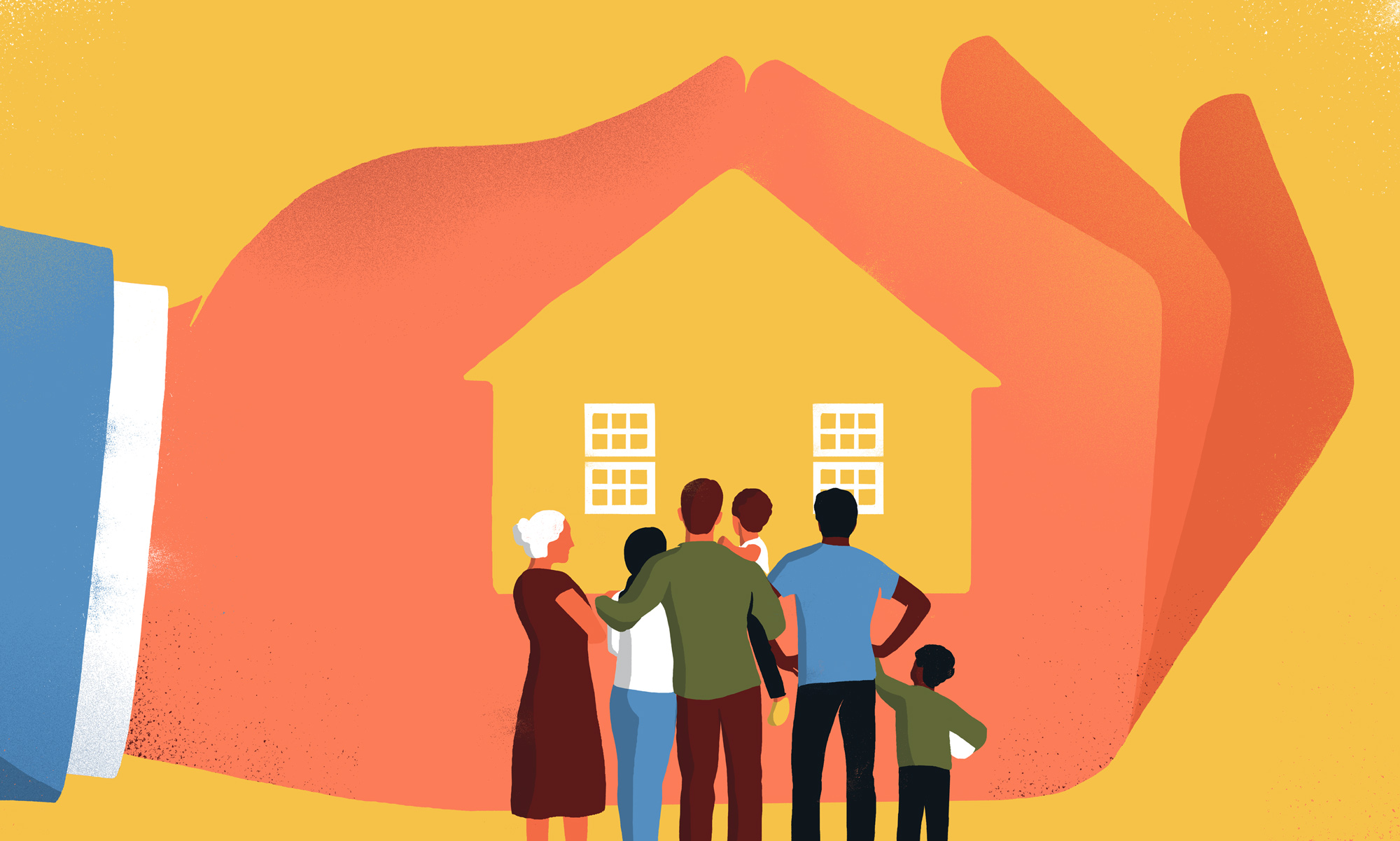Affordable Homeownership Options for First-Time Homebuyers
As the housing market continues to progress, first-time buyers encounter unique difficulties in securing budget-friendly homeownership alternatives. Various resources, consisting of government aid programs, low-down-payment mortgages, and targeted gives, have emerged to reduce monetary pressures. These initiatives not only facilitate homeownership but likewise foster area security and financial development. Navigating these alternatives can be complicated, and understanding which paths are most valuable requires cautious consideration. What approaches can potential home owners employ to optimize their possibilities in this landscape?
Government Aid Programs
Federal government aid programs play a crucial duty in making homeownership attainable for several individuals and family members. These programs aim to alleviate the financial concern connected with acquiring a home, especially for first-time customers. By offering financial assistance, gives, and tax incentives, government campaigns aid link the void between increasing real estate prices and the acquiring power of prospective home owners.
Various programs are offered at the federal, state, and regional degrees. The Federal Real Estate Management (FHA) provides insurance policy on finances, enabling lenders to use more positive terms, such as lower down repayments and reduced interest rates. Furthermore, state and local federal governments frequently have their own efforts, which might include down payment aid programs, property buyer education and learning courses, and positive mortgage terms.
These programs are created to deal with the special challenges faced by reduced- to moderate-income family members, consisting of restricted cost savings and credit rating. By promoting a setting where homeownership is a lot more accessible, government aid programs not only sustain private aspirations yet also contribute to neighborhood stability and economic growth. Recognizing and using these resources can considerably boost the prospects of effective homeownership.
Low-Down-Payment Home Mortgages
For lots of aspiring house owners, low-down-payment home loans present a viable pathway to homeownership, especially in today's difficult real estate market. These mortgage options usually need down repayments varying from 3% to 5%, making it much easier for first-time customers to get in the market without the burden of conserving for a substantial down settlement.
Different lenders offer low-down-payment programs, consisting of conventional financings backed by Fannie Mae and Freddie Mac, in addition to government-backed options like FHA finances. These home mortgages are created to fit individuals with minimal financial savings while still offering affordable rate of interest. Significantly, they allow buyers to preserve even more money for other necessary expenses, such as relocating costs, home examinations, and possible renovations.
Nonetheless, possible home owners should bear in mind the compromises connected with low-down-payment home loans. A smaller down payment might lead to higher monthly payments and the necessity of private home mortgage insurance coverage (PMI), which shields loan providers in instance of default. It is crucial for newbie purchasers to carry out thorough research and seek advice from with mortgage professionals, guaranteeing they pick a low-down-payment choice that lines up with their long-term financial objectives.
First-Time Property Buyer Grants
Several first-time property buyers find that grants can significantly relieve the monetary worry of acquiring a home, matching low-down-payment home mortgage options. These here are the findings gives, typically offered by state and city governments or non-profit companies, supply financial assistance that does not need settlement, making them an eye-catching option for those going into the housing market.
Qualification for first-time buyer grants typically depends upon revenue, credit reliability, and the acquisition cost of the home. Many programs are created to aid reduced- to moderate-income households, making certain that assistance gets to those who need it most. The application procedure commonly includes documents of economic standing, buyer education courses, and occasionally even a dedication to remain in the home for a particular duration.
The amount useful varies extensively, with some gives providing numerous thousand bucks to help cover closing costs or down settlements. Looking into available grants in your area is vital, as programs regularly alter and might have particular needs. By leveraging these financial sources, novice this buyers can make homeownership more obtainable, inevitably attaining their dream of owning a home while mitigating the initial monetary strain.
Ingenious Neighborhood Initiatives
Cutting-edge community campaigns are playing a vital function in increasing economical homeownership options for homeowners. These initiatives often involve collaborative initiatives in between city governments, non-profit organizations, and economic sector stakeholders to create sustainable real estate solutions customized to community demands.
One notable method is the facility of neighborhood land depends on (CLTs), which permit residents to buy homes while the land stays had by the trust. This version aids preserve affordability with time and avoids speculative rate increases. In addition, CLTs often supply educational sources and support solutions to encourage newbie buyers.
One more reliable campaign is the development of mixed-income housing projects, which blend inexpensive devices with market-rate homes. This approach fosters inclusive areas and reduces the preconception typically connected with low-income real estate. Local federal governments are significantly sustaining zoning reforms to assist in the building and construction of accessory residence units (ADUs), which can offer additional rental income for property owners while increasing real estate accessibility.

Tips for Budgeting and Saving

Following, establish a specialized interest-bearing account particularly for your future home acquisition. Purpose to save a portion of your revenue continually, preferably 20% or more, to develop a significant down repayment. Make use of automation tools, such as straight down payment or automatic transfers, to make conserving less complicated and more regular.
In addition, think about taking on the 50/30/20 guideline: assign 50% of your income to needs, 30% to desires, and 20% to cost savings and financial debt repayment - Affordable Homeownership. This approach advertises balanced monetary wellness

Verdict
In summary, budget-friendly homeownership choices for newbie property buyers incorporate various resources such as entitlement program programs, low-down-payment home mortgages, and grants. These efforts not just help with entrance right into the real estate market but likewise advertise area stability and economic advancement. By leveraging these economic tools, individuals can navigate the complexities of homeownership, inevitably adding to an extra equitable housing landscape. Continued support and recognition of these programs are necessary for enhancing availability to homeownership opportunities.
As the real estate market continues to advance, newbie homebuyers face unique challenges in safeguarding budget-friendly homeownership options. By cultivating a setting where homeownership is much more obtainable, government help programs not just sustain private ambitions yet likewise add to community stability and financial development. By leveraging these financial sources, novice buyers can make homeownership a lot more accessible, ultimately achieving their desire of owning a home while mitigating the first financial stress.
In summary, budget friendly homeownership choices for new homebuyers include numerous sources such as federal government assistance programs, low-down-payment mortgages, and grants. By leveraging these monetary devices, people can browse the complexities of homeownership, inevitably adding to a more fair real estate landscape.